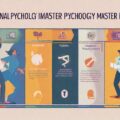As a school psychologist or an aspiring professional in the field, staying informed and equipped with the right resources is vital for your practice. School psychology is a dynamic field that requires a deep understanding of educational systems, psychological theories, and effective assessment tools. In this article, we will explore some of the essential books and assessments every school psychologist should be familiar with.
Top Books for School Psychologists
The following books are highly recommended for professionals in school psychology:
- Best Practices in School Psychology – This series is a comprehensive guide covering various aspects of school psychology, including assessment, intervention, and research.
- The School Psychologist’s Survival Guide – A practical book that provides tips and strategies for managing everyday challenges faced by school psychologists.
- Handbook of Psychological Assessment in Schools – Offers a thorough examination of psychological assessment processes within educational settings.
- Educational and Psychological Measurement – This book delves into the principles of measurement and evaluation in educational contexts.
- Psychoeducational Assessment and Report Writing – A detailed guide on writing comprehensive and effective assessment reports.
Crucial Assessments in School Psychology
Assessment tools are essential for school psychologists to evaluate and understand students’ abilities, challenges, and needs. Some of the key assessments include:
- Wechsler Intelligence Scale for Children (WISC) – Widely used to assess cognitive ability in children.
- Behavior Assessment System for Children (BASC) – Helps evaluate children’s behavior and emotional functioning.
- Response to Intervention (RTI) – A multi-tiered approach to the early identification and support of students with learning and behavior needs.
- Curriculum-Based Measurement (CBM) – Utilized for monitoring students’ progress in basic academic areas such as reading, writing, and mathematics.
- Autism Diagnostic Observation Schedule (ADOS) – An observation-based assessment used to diagnose and assess autism.
Developing Your Professional Library
Building a professional library can be an ongoing process. Here are some tips for developing your collection:
- Stay up-to-date with the latest research and trends in the field.
- Network with other professionals to learn about their go-to resources.
- Attend workshops and conferences to discover new materials and assessments.
- Balance your library with both foundational texts and innovative approaches.
Integrating Assessments into Practice
Integrating assessments into your practice involves more than just administering tests. It requires an understanding of their theoretical foundations, proper interpretation of results, and the ability to communicate findings effectively to parents, teachers, and students. Continual professional development and ethical considerations are also crucial in this process.
Staying Ethically Informed
Ethical practice is a cornerstone of school psychology. Familiarize yourself with the ethical guidelines established by professional organizations like the National Association of School Psychologists (NASP) and the American Psychological Association (APA). These guidelines will help you navigate complex situations and make informed decisions.
FAQ
What are the essential books for a school psychologist?
Essential books include ‘Best Practices in School Psychology’, ‘The School Psychologist’s Survival Guide’, and ‘Handbook of Psychological Assessment in Schools’ among others.
What assessments are crucial for school psychologists?
Important assessments include the Wechsler Intelligence Scale for Children (WISC), Behavior Assessment System for Children (BASC), and Response to Intervention (RTI), to name a few.
How can school psychologists stay updated with new assessments and books?
School psychologists can stay updated by attending professional development workshops, networking with peers, and subscribing to relevant journals.
Why is ethical practice important in school psychology?
Ethical practice ensures that school psychologists uphold professional standards and provide the best care for students and their families.
How should school psychologists integrate assessments into their practice?
Assessments should be integrated with a deep understanding of their purpose, accurate interpretation, and clear communication of the results to all relevant parties.









